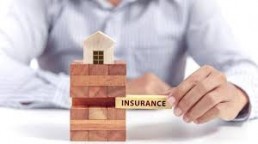Business Insurance Trends 2021
Business Insurance Trends in 2021
Certainly, over the course of the recent year and a half, Canadian business owners have had to adapt and adjust to the new and ongoing realities of business operations. What is also important to note is how this reality has also been significantly reflected in their insurance coverage needs.As many experts are looking at a more positive outlook for the business world moving forward, here are some business insurance trends that are likely to continue throughout Canada as 2021 progresses.

E-Commerce Businesses
With many businesses either switching over to the e-commerce route or being established with this business model in mind, many business owners, including small businesses, will require e-commerce insurance to help offset the potential risks that can also stem from online operations.
One specific are of insurance that online retail business owners will definitely want to consider is cyber insurance. Cyber Liability Insurance, for example, can be added to an e-commerce insurance policy to protect businesses from loss of income, reputation and legal issues, that can result from data breaches and the loss of sensitive information.
Fortunately, cyber insurance can help protect businesses – large or small in a variety of ways.
Business owners are encouraged to look into which areas will concern them the most, and in turn, surround their e-commerce business with the most solid protection possible.
Flexible Working Locations
Another exemplar on the rise this year is the shift towards more frequent work from home. With many employees making this work trend more the norm in 2021, this is also likely to continue to impact insurance coverage moving forward. With employees performing their jobs in a similar manner, yet at times doing so from home, the sensitive nature of their work may require additional cyber security measures.
While network cyber security systems may already be in effect for remote work locations, this type of business insurance can help to protect companies from the unavoidable hazards associated with cyber crime, regardless of where their employees are working at the time.
Home Offices
For those employees who may be making a more permanent shift to remote working environments, in addition to having the necessary cyber security, they will also want to have protection in place to account for their physical work space and business assets.
First of all, having professional liability insurance will be beneficial should businesses be faced with financial losses associated with potential client lawsuits. These costs can be high, and this form of business insurance can greatly contribute to preserving a company’s future financial position.
Since employees may be keeping inventory and equipment at home, in order to perform their duties, then this may also require addition coverage in the form of property insurance. Should there be a need to replace expensive equipment, or should the workspace, itself be damaged, having insurance to properly cover these costs will be extremely important.
When all is said and done, having the most suitable insurance in place and by keeping apprised of the trends related to the additional areas of insurance that are worth an extra consideration, is a vital part of owning a business, especially in this day and age.To learn more, Contact Leaders Insurance to find out how we can help you identity and access the the most up-to-date and comprehensive insurance policy for your business needs this year.
How to Protect Your Hospitality Business in BC
How to Protect Your Hospitality Business in BC
While all businesses are important endeavours that will require insurance to protect their day to day operations, the hospitality business industry is its own unique entity that will require specialized insurance coverage. Whether you are operating a hotel, a bed-and-breakfast, a restaurant, or other, read on to learn more about how you can protect your hospitality business in BC.As a business owner in the hospitality industry, you are likely already very familiar with the ins and outs of what goes into operating a safe and secure place of business for your guests and your staff. To help ensure everyone involved is will protected, here are some important insurance coverage areas to consider.

Business Liability Coverage
Having business liability coverage is likely to be at the top of your list as it can help safeguard your business, in the event you are at fault for causing property damage and/or bodily injuries to a third-party individual.
This area of coverage in particular, can help with any substantial legal expenses your business could be faced with, and as a result this type of insurance coverage can be an extremely important part of your insurance plan.
Building Property and Contents Coverage
A second area of coverage worth mentioning is business property insurance. Not only does this cover the business property itself, it can also account for your business assets and equipment. Should the business property and its contents need to be repaired or replaced, business property coverage can help with these significant costs.
Business Interruption Coverage
Additionally, business interruption coverage will help protect your hospitality company from the any unexpected and unfortunate times when the business may have to be shut down for a variety of reasons. To avoid financial ramifications that can result from business interruption, this facet of insurance will enable you to continue to cover these potentially damaging costs.
Under the similar area of coverage, we also have Equipment Breakdown insurance. This may also be a necessary add-on to your hospitality policy, as this could very well be one of the contributing reasons why your business may encounter some form of disruption or closure.
Host Liquor Liability Coverage
Another type of insurance coverage that is unique to the hospitality sector, is Liquor Liability coverage. If your business will be manufacturing, selling or serving or even facilitating the purchase of alcohol, as the host, you will be responsible for a range of outcomes that can occur.
For example, in the event a guest becomes intoxicated and becomes injured or injures someone else, having liquor lability insurance will be an extremely important part of your insurance policy and will add yet another layer of protection to your business.
To help ensure you can protect your hospitality business from the various risks that can occur, it is recommended that you keep these areas of coverage in mind as you identify your ongoing business needs.To learn more about which specific areas of insurance coverage will be the most suitable for your hospitality business, contact our experts at Leaders Insurance and allow us to be of service to you, just as you continue to be of service to others.
Are electronics your child takes to school covered under your home insurance policy?
Are electronics your child takes to school covered under your home insurance policy?
It’s almost that time of year again - back to school for many students of all age groups.This past year has brought about many changes, with one major one being the increased use of technology used ‘in the classroom’.
While many schools may provide technology to support learning, there will be times when students will be taking their own electronics to school with them.

Naturally, many parents will be wondering whether these devices are covered under their previous home insurance policies. To answer this question, it is important to know that it will likely depend on when and where, and how these devices are being used.
For instance, while a range of personal belongings, including electronics are covered under the main home insurance policy, the use of these electronic away from the home may change this scenario.
Peril Insurance, for example, can help protect items lost or damaged in the home due to events such as fire or flooding, as well as theft and vandalism. However, this initial home policy may not be valid when it comes to covering replacement costs for items that have been damaged or lost while being used at school or on the way to and from school.
With that being said, it will most likely be necessary to purchase additional coverage for this type of expense. With the extended coverage for personal contents, specifically for electronics used outside of the home, these costs, up to a certain value, can be claimed depending on the extent and nature of the damage to these items.
This will typically include, devices that are either lost or stolen, as well as those that are subjected to accidental damages. In some cases, accidental damage coverage will also be its own specific add-on to the current policy.
It is also important to factor into the situation of whether a child is attending day school or attending university or college away from home. If your child, for example, is moving away for a school term, however it is not considered a permanent move, many home insurance policies can be adjusted to protect the electronics they are using while away at post-secondary institutions.
Alternatively, if your child moves away on a more permanent basis, then it is more than likely that they will need to look at purchasing renters’s insurance to support the coverage of these types of devices.
In the end, it is commonplace that a current home insurance policy will need to be re-evaluated to include extra contents coverage for items such as these electronics, especially those that are being used outside of the home.
If you find that your child will be using electronics away from home this school year, it is recommended that you discuss your options with an insurance agent who has direct knowledge of these policies.
At Leaders Insurance, we are happy to re-visit your existing home insurance package with you, in order to help you feel more assured that your coverage meets all of your home contents needs, this school year and into the future.
How Home Renovations Can Impact your Home Insurance
How Home Renovations Can Impact your Home Insurance
As a homeowner, having the proper home insurance is an important part of maintaining your home. While there are different types of coverage for different home ownership realties, one aspect of your home insurance policy to give some additional consider, is how home a renovation will impact your coverage.Whether planning to transform your home on a large or smaller scale, there are elements of your current policy that may covers these, and others that may not be covered.
When re-evaluating your home insurance, one initial step is to identify the nature of your renovating needs. For example, will this be a minor project or a major one.
If you are planning a smaller sized reno, then is it possible that your current coverage may still be suitable. For example, if you are painting or touching up some small features of your home, this may not require any further insurance.
However, if you are planning for a major construction job, then re-assessing your coverage is definitely in your best interests.
With that being said, if your home or property becomes a ‘construction site’, there are many extenuating circumstances that can occur and this will add some more risk to your role as a homeowner.

Some Additional Factors to Consider
As mentioned, undergoing a major renovation will require additional considerations. First and foremost, your home may turn into a construction zone of sorts, and this might mean there will be building items and equipment left on your property during this time. If this is case, then having extra insurance for instances such as vandalism or theft may be worth an added precaution and in turn, an adjustment to your insurance may be warranted.
Secondly, you may also want to factor in business liability or general liability insurance as this will help to cover professional contractors who are working on your property. In the event, the contractor’s actions lead to damages to your property or the property of others, this specific type of coverage can help you cover these costs.
Another scenario worth considering, is whether you will need to move out of your home during the renovation process. If this is the case, and if you are not residing in the home for more than 30 days, you may also want to look into whether or not you need to obtain extra coverage known as a Vacancy Permit. If necessary, this added insurance peace can help keep your home covered during this timeframe.
Finally, adding onto your home can also increase the value of your home. As a result, it may be necessary to add on more insurance to cover needs such as replacement costs in a variety of situations. Should your home, for example, require repairs due to water and fire damage, to mention a few, you are ensuring your have enough coverage to align with these types of unexpected expenses.
In the end, when you are in the beginning stages of planning to renovate your home, it is best to get in touch with your home insurance agent to find out more about what additional insurance may be required.
To ensure you have right coverage, Leaders Insurance can assist you in identifying your home insurance renovation needs. We look forward to helping you make your home renovations dreams come true.
The In & Outs of Commercial Insurance
The In & Outs of Commercial Insurance
Whether you own a small, medium or larger sized business, there are specific types of insurance coverage that will meet individual business needs. To learn more and to help identify the type of commercial coverage you should consider for your business, here is some more information that will give you a clearer picture of the the different types of existing commercial insurance.

What Type of Commercial Do You Need?Property Insurance
Property Insurance is a key aspect of a commercial policy. This type of insurance can cover a broad range of areas, including various potential damages to your property. In the event, there is damage done to your physical business assets, exterior property fixtures, this coverage can help with repair and replacements costs.
Damages or losses that occur as a result of fire, flooding, storms, vandalism and thefts are circumstance that are commonly covered under these plans.
Specific property items that are typically covered under the insurance policy will include, computers and other business equipment and documents, furniture and inventory, other’s property, indoor and outdoor signage, and the building premise, itself.
In the event, you may have to shut down all or partial areas of your business, having Business Interruption Insurance can be greatly beneficial as it can help you to continue to pay your bills, while also meeting payroll needs.
Do You Need Extended Coverage?
While properly insurance is a main type of insurance coverage you will want to include in your policy, there are other areas of coverage also worth some additional consideration and these typically fall under the scope of extended coverage.
Professional Liability
Professional Liability insurance can support any legal fees you may be subject to as a result of being found at fault for any professional services you have supplied. For example, this may include instances of customers claims that the work or services did not fulfil contractual agreements.
Product Liability
Also relating to customer claims, however in this case specific to the products and services themselves being faulty or problematic, this Product Liability coverage can protect you by also reimbursing expenses associated with your legal defence needs.
Cyber Insurance
Regardless of the size of your business, having cyber insurance in place is an important way of protecting your business against a range of cyber-attacks and the financial costs that can occur as a result. Some of these threats include, loss of income from online sales disruption, data loss, as well as damages affecting business reputation and legal defence expenses.
Auto Insurance
If your business involves the operation of vehicles, having commercial auto insurance is also a good idea. Similar to personal auto insurance, business auto coverage, relates to damages to vehicles related to theft and vandalism, and storm-related destruction. Commercial auto policies can help with replacement and repairs costs of your company vehicles.
Equipment Breakdown Insurance
One final type of commercial coverage also worth mentioning, is known as Equipment Breakdown Insurance. To avoid, significant loss of operations and income, this type of insurance can help with repair and replacements costs so that your business can be back up and running as soon as possible.
When all is said and done, there are many aspects of commercial insurance that you will want to consider. To learn more about the ins and outs of commercial insurance, connecting with and insurance agent can provide the most effective pathway forward.
Contact Leaders Insurance and we can help you find the most comprehensive commercial insurance coverage for your unique business needs.
Top Cyber Trends for 2021
Cyber Security 2021 (Top Trends)
Issues of cyber security have been an ongoing challenge for companies and individuals for many years now. With that being said, there certainly has been an increase in these threats in the past year, perhaps partially responsible for some of these issues occurring more readily, is the shift to more online and remote work.Whether or not your company’s security has experienced the increase in cyber attacks due to remote or in person working environments, the reality is that keeping your data private has likely become even more necessary compared to in previous years.
Here are some of the top trends in cyber security to be aware of in 2021.

Increase in Ransomware Attacks
The unwanted presence of ransom-ware attacks have been on the rise and companies are being threatened with issues that can range from frozen internal systems, stolen software and data breaches – often coming at a high financial cost.
In order to help protect these cyber weaknesses, you can to turn to products that can ensure a stronger perimeter around your networks. Cyber Security products such as SASE (secure access service edge) and XDR (extended detection and response) to mention a few are designed to support these purposes and can also be used in remote working environments.
Broadening Scope of Phishing Scams
Other major cyber-attacks that have escalated this past year, is malware and phishing scams. While these are not new occurrences, cyber thieves has definitely seemed to have expanded their scope, as they continue to look to steal confidential data through various means. These include email and social media accounts, and text messaging systems, where a link is attached, and if accessed, information and internal systems can become compromised.
That being said, text message or SMS-related phishing scams, knowns as ‘smishing’, have been more common place lately as well, and while email systems may already filter out these as spam, text messaging platforms do not typically have the same initial protections in place. With more employees working remotely, the use of cell phones and text messaging has also become a more common form of communication and as a result, can be more easily accessed by employees and businesses unknowingly.
In addition to increased employee diligence, such as not opening links from individuals or organizations you do not recognize, businesses can also protect themselves by implementing anti-virus software that requires URL/domain authentication.
The bottom line really is, that by being proactive and having these important cyber security measures in place, you will stand a better chance of being able to fend off the damaging effects of cyber attacks. Looking into the types of products and services that will be best for you is an important step in the right direction.
Growing Importance of Cyber Insurance
Furthermore, you can also elevate your own level of protection by having the right cyber insurance for your needs.
With a high volume of cyber claims typically ranging from hacking, phishing and ransomware threats, it is even more critical that you factor in this type of insurance into the management your business, whether you are working remotely or in person.
At Leaders Insurance, we want to help you protect your business. Contact us to find out more about the insurance policies we offer and how you can continue to stay on top of cyber security in 2021.
Should I buy a car if it has a history of being in an accident
Should I Buy a Car if it Has a History of Being in an Accident?
If you are thinking about buying a used car, there are some important considerations you will want to make before you take this type of financial step. First and foremost, you want to be aware of the vehicle’s history and this of course, includes whether it has ever been involved in an accident.Even in the event, the vehicle of interest has been in accident, the question next on your mind should be whether or not is it still ok to buy this car?
Since there can definitely be advantages to buying a used vehicle, lets dive a bit deeper into the issues surrounding buying one that does have a history of being in a collision.

The Advantages of Buying a Vehicle That Was in an Accident
Some benefits of buying a used car – accident or not, have to do with being more environmentally-friendly as well as of course being more affordable. Compared to buying a new vehicle, you are looking at paying a lot less for a used vehicle that has already depreciated significantly.
Furthermore, if the one you are interested in has a history or being in an accident, the asking price is also even more likely to be much lower than one with track record of being accident-free.
Disadvantages of Buying a Vehicle That Was in an Accident
Of course, there will also be some disadvantages to factor into your decision to buy a used vehicle with accidents in its past. For example, while the upfront costs may be a lot less, you want to be leery of whether or not the car does have unforeseen damage or is not in proper working condition.
If this does turn out to be the case and you were not aware or you did not think this would be an issue, either way you could incur more maintenance and repair fees down the line, which can definitely offset the reduced fees you paid in the beginning.
While of course, this does not reflect an ideal scenario, on a more positive note, regardless of whether a vehicle has a collision history or not, does not have to mean you will be purchasing a lemon.
Additional Considerations
Not only will you want to be aware of whether the vehicle was ever invoked in an accident, it is also equally important to learn about its complete history, including the nature of the damage and the types of repairs it has received. This can help you to not be caught off guard down the line with any existing damage that has not been adequately fixed and in turn affect the performance and safety of the vehicle.
This complete history also includes previous registration details, and even any recalls that vehicle model may have experienced. You can turn to various companies that help with these types of evaluations.
For example, a reputable mechanic can perform a thorough inspection of the vehicle, before you move forward with this purchase. During this process, the vehicle, despite having been in an accident, may be a sound choice as it may have been well taken care of, following these events.
What to Know about Insuring a Vehicle with a History of Being in an Accident
A vital piece to this purchase decision, should also include how the car is likely to stack up against new or ‘non-accident’ used cars, when it comes to obtaining insurance coverage.
For example, this is also where knowing the vehicle history and accident details, including the exact nature of the damages and repairs will come into play.
In the event, the damage was extensive and the vehicle was resold with a salvage title attached to it, this can mean that the vehicle is then deemed to have had major structure damage. Not only does this mean the value of the car will be much lower, it could even mean that it will be uninsurable.
While a vehicle with a history of accidents will be less in value, owning a car with this type of track record does not have to preclude you from being able to acquire the insurance you need. However, purchasing one that has had minimal damage and a solid repair history will improve your access to more affordable and appropriate coverage.
The bottom line is that doing your homework and learning as much about the background and the current condition of the vehicle will be an extremely important part of your decision to buy a used vehicle.
If you are unsure whether the insurance company will be able to provide coverage or how high this policy will be, it is best to reach out to the insurance agent first and find out what you can expect from this process.
Leaders Insurance has its own strong track record of providing car insurance policies for a variety of vehicle types and driver’s needs. Contact us to learn more about how we can support your goals of purchasing a quality used vehicle.
Get Organized for the Fall - 5 steps to getting your business in order before September
Get Organized for the Fall - 5 steps to getting your business in order before September
Hopefully you are continuing to enjoy the summer months. With that being said, it is also a good idea to start thinking about how you can get your business organized in time for September.Here are 5 steps to follow in order to plan for a successful fall start:

Identifying Employee Goals
First of all, it is likely that employees also play a vital role in your business’s day to day triumphs and ongoing performance results. However, in order to ensure you are all working as a team, it is important to have clear objectives in place for your employees. This can start by providing them with well-defined job descriptions, goals, and desired outcomes.
When an employee has a clear understanding of their tasks and their purpose, they are better able to be more productive and engaged in their role. Ultimately, when each employment’s role is organized and planned out, employees and the company as a whole will be in a much better position to succeed.
Establishing Company Protocols
Perhaps you already have certain business protocols in place, however reassessing and re-imagining them, is still a valuable step in this process. This part of the organizational plan does take a lot of additional planning, as it should cover a wide range of potential situations that are likely to occur during business operations.
Depending on the type of business you are running, these protocols will vary, however some main stay protocols to factor in will include, sales and delivery procedures, employee satisfaction and safety, customer interactions, and relationships with other company partners – to mention a few. Your employees need to also be up to speed on the majority of these day to day protocols, so that in their employer’s absence, they know the proper guidelines to follow in order to support daily business efficiency.
Having the Right Digital Systems
To further organize your business for the fall, it is also best to review the type of technology that make up your company’s operations. Not only will you want to ensure your hardware, computers, printers, and other devices are in properly working condition, you will want to readdress the software programs you are utilizing.
Perhaps this will include, having an overall software program that allows you to manage customer, product & services data, as well as the methods that are used to promote communication between staff, clients, and business partners. It is also important to look to the type of cyber security measures you have in place to protect your business communications.
Again, dependent on the nature of your business, the type of programs you use will differ. That being said, some considerations to make during this organizational stage should include, accessibly, efficiency, security and unique features that best align with your business needs.
Utilizing Time Tracking Tools
Another aspect of your fall business plan can be to consider using time tracking tools, such as various computer software and applications. While you want to ensure that you are not making employees feel undervalued during this process, you can however, help to promote employee and in turn, company performance by keeping track of how much time staff are spending on each task.
With this information on hand, you can re-establish job roles and procedures and also find ways to perform these tasks more efficiently. Subsequently, not only can this enable business organization, it can also help with employee job productivity and job satisfaction.
Continuing to Ask ‘Why’
Lastly, it is vital to review and adjust day to day business procedures, and this can be done by continuing to re-evaluate the ‘why’ behind how you approach every aspect of your business. The reality is that times do change and companies must continue to evolve and meet the demands of the clientele and the world as a whole.
Revisiting the processes and procedures you are using to run your business is a good place to start. If some facet of your business is no longer working, or could be done more effectively, then re-examining the methods you are using, is a critical part of this pre-fall organizational plan.
In the end, it is not a surprise that businesses require ongoing attention and adjustments. As a business owner, you have likely already seen and been involved in these types of practices. If you are in the process of starting to get organized for the upcoming months, then taking the time to move through these steps can help you to rev up your business for the fall.
Contact Leaders Insurance to find out how we can support your business with variety of insurance policies. We look forward to being apart of your successful start to September.
How to keep your pet safe while driving
How to Keep Your Pet Safe While Driving (3 tips)
Planning to drive safely should always to be a top priority. With that being said, when driving with pets in the car, there will also be some additional precautions you will want to arrange before heading out on the road.Whether you will be venturing out on shorter trips or making longer hauls, here are 3 tips to help keep your pet safe while driving.

Choosing the Best Travel Equipment
One of the first steps you can take to ensure your pet’s safety is to purchase a product to help protect your pet while in transit. There are several options to choose from that range from harnesses and car seats to crates and carriers. Each serves unique purposes and can be a safe option for a range of pet needs.
Harnesses, for example will allow for some movement by your pet while in the vehicle, however will provide support if you are involved in a car accident. These devices will vary depending on the size of your pet – and in many instances, can be used for dogs and cats.
Car seats, on the other hand, are more commonly used for dogs that are small to mid-sized. These seats can be fitted to the size of your pet and again, in the event of sudden stop or collision, can provide added padding and security for your pet.
Lastly, crates and carriers are another staple for travelling with pets that are a variety of sizes. These containers of course, prohibit animals from roaming freely in the vehicle. However, it may also be a good idea to combine this travel hardware with a harness to add further protection to your pet while on route to your destination.
There are several factors that go into deciding which type of travel equipment is the most suitable option for you and your pet. That being said, it is a good idea to do some additional research to identify which one is ideal for your personal situation, at this of course includes what your pet can tolerate best.
Practicing Travel Training
Another very important part of this process is to help ease your pet into these types of outings by doing some travel training. Each type of travel method and travel equipment will likely use some getting used to so that your pet does not become too anxious or distressed while being on the move.
You can begin with shorter trips and then progress to some longer ones to allow for your pet to adapt to this new set up. Especially if you will be gearing up for extended travel, this added practice can be even more important and in turn, help to ensure the overall well-being of your pet.
Packing a Pet Travel Kit
One final, yet vital tip is to remember to pack your pet’s travel kit. This kit can include all of the supplies that they may need to be safe and content though out this excursion.
Supplies you will typically want to add to the travel kit are: a leash, food and water, the respective bowls, and any ‘bathroom’ essentials you will need, such as bags and tools to be able to attend to their waste, and if you pet is a cat, then also kitty litter and a kitty litter box.
Additionally, your pet may also greatly benefit from having some other comforts, including any toys or blankets that they use regularly at home. It doesn’t also hurt to travel with your pet’s health information, including immunizations and medications, and other veterinarian health records. These will come in handy, especially if you are travelling far from home and your pet might require emergency care.
When all is said and done, we want to protect our pets as they are an important part of our lives. These tips can allow you to keep your furry loved ones safe and sound as you travel around BC or beyond.
Having the best insurance in place is also well-worth the additional consideration and can help you protect your pet. By having a variety of insurance policies to cover your travel needs and your pet’s needs, together, you can all travel more comfortably and confidently.
Contact Leaders Insurance to learn more about the insurance coverage we offer that can best support your needs. After that, we hope you continue to enjoy the open road, with your beloved pet by your side.
Do I need renters insurance?
Do I Need Renters Insurance?
Are you planning on becoming a renter or currently are renting and want to know more about whether or not you should have renter’s insurance?While it is not mandatory to always have renter’s insurance in BC, it is highly recommended in order to protect yourself and your possessions in a variety of important ways. That being said, in some cases, some landlords may require this as a part of your rental agreement.
Read on to learn more about the nature of renter’s insurance coverage and how it can benefit you.

Also known as tenant insurance, while the costs will vary, renter’s insurance can be quite affordable compared to homeowner insurance. Additionally, renter’s insurance can do quite a lot to help protect you, not to mention provide the peace of mind you need while continuing to live comfortably in a rental unit.
More about Renters Insurance
While the rental property owner will be primarily responsible for providing coverage for the building and surrounding property itself, this will not extend to your personal possessions as well as situations that relate to actions that may make you responsible for repairs and damages.
Insuring Your Belongings
To begin, it is a good course of action to have additional coverage in place to protect your own personal belongings. For example, in the event you fall victim to theft or damage to your possessions, renter’s insurance can provide coverage up to a certain value to help with the often high costs associated with replacing these items.
When determining how much coverage you might need, you can start by taking an inventory of your items and estimating the total value. The following are some items to factor into your evaluation:
Personally owned appliances and electronics, furniture, bicycles and equipment, clothing, collectibles, jewelry and any other valuable items.
In the end, then value of these items, when combined, can reach high amounts and so it is worth having this additional security in place, in the event they are stolen or damaged.
Personal Liability Insurance
As mentioned, the property owner will have their own liability insurance to cover damages to the building, etc., however as a renter, it is important to also have your own coverage to protect yourself.
While you are likely to be taking all of the added care you need while living in your rental unit, sometimes accidents can happen that can leave you responsible for damages or injuries to another individuals. If there is damage to the unit or injuries to others occur while in your unit and you are found liable, insurance can help with any potential legal fees you might incur.
In some tenant policies, liability insurance can even cover scenarios when you need to stay at a hotel or another place where accommodations will need to be paid for, while your rental unit is being repaired. Rental insurance can help cover some of these costs and can definitely be well worth having in place for a wide range of situations.
Additional Insurance Factors
Again, renter’s insurance fees will be determined by a variety of factors, and therefore, when identifying the specific coverage, you will also want to be aware of some specific information regarding the unit you are renting.
With this information on hand, an insurance agent can help find the best tenant policy for your needs, based on the following criteria:
The year the unit was built, the unit square footage, and then type of heating used in the building. Additionally, factors including how close you live to emergency services, such as the fire department can also play a role in how an insurance policy is curtailed to meet your unique rental situation.
With a variety of situations helping to determine the type of renter’s coverage you will need, an important step in this process is to connect with an insurance agent to ensure you have the best policy in place for your individual needs.
At Leaders Insurance, we are more than happy to work with you to arrange for the best tenant insurance coverage that will provide the most protection possible.
Contact us to find out more about renter’s insurance coverage in the BC region.
